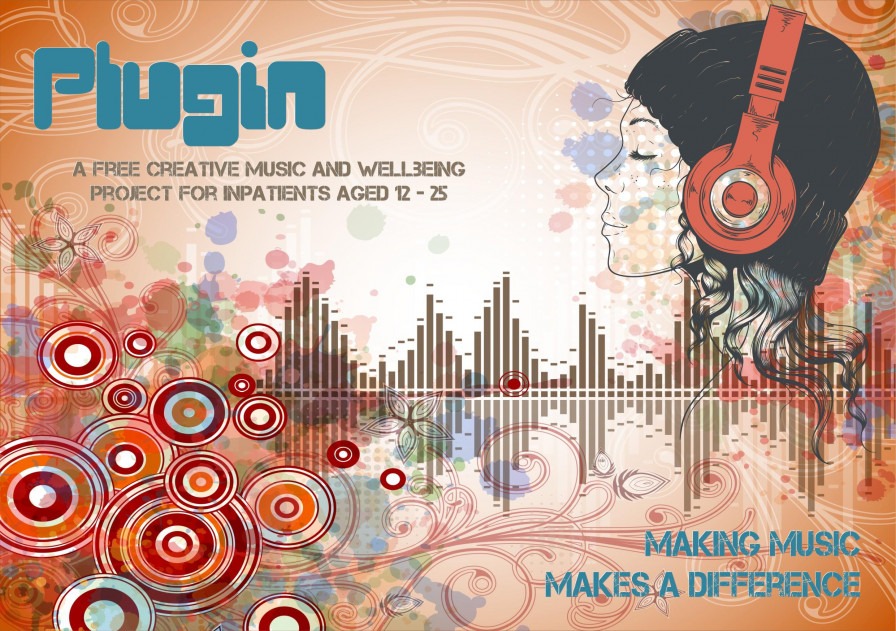The challenges of working with setting restrictions – how to be able to adapt when a setting increases security/puts limitations on how you run sessions by Dan Cippico (Lead Music Leader on Quench Arts’ Plugin project)

Plugin has been incredibly successful in the setting I was working in this year. We had young people who had never used Logic before composing and producing their own music, sessions where songs would write themselves by freestyle rapping, and challenging topics channelled into empowering lyrics.
However, this year, we also had a fair share of challenges. Alongside the regiments of Covid procedures, there was a noticeable increase in profound mental illness within the ward, with a few of our participants often absent for weeks-on-end due to them being placed in seclusion for their health. The hospital also didn’t have many referrals to both low and medium secure units, leaving the pool of participants extremely low. During the project year there was also a significant security breach with the in-house iMac we used for our sessions, which took place outside of our sessions, which meant a month without any digital-interfaced technology whatsoever as the equipment was needed for forensic evidence and new procedures had to be put into place within the setting for IT access. Luckily, we’d saved backups of the majority of the tracks that the participants had created onto a USB stick, which was a huge relief. At the time, we had no indication of how long the iMac would be out of bounds for. So, changing our tactics, we brought pens and paper instead of computers, a guitar and cajon drum instead of a microphone, and a small plug-in keyboard. This was a great departure for us in this setting as the Plugin project is essentially focused on creatively using music technology, so we had to adapt quickly!
Being open and honest about the situation with the young people really helped them to understand it and appreciate that we could still make music together under the circumstances. We wrote lyrics down on paper, and when it came to putting words to music, the young music leader working with myself on site and I would take our respective places on cajon and guitar and improvise a beat, matching the tastes of the young person as best we could, with fantastic results. One or two of the participants took an interest in playing these instruments themselves, some with previous experience and others new to it, which added some unexpected kinaesthetic learning to our sessions. Despite this analogue arrangement, we actually had great engagement from the young people we did see, though one did lose interest as the non-digital route was ultimately inaccessible for his needs.
During the project year, and particularly at this point, we had a limited number of participants and frequent absences. However – this gave the participants we did see in the three hour slot the benefit of longer sessions, which resulted in us forming stronger relationships with them in addition to developing finer details in their music. Eventually, the news came that hospital had chosen to relax its rules to allow us to bring in technology. We still couldn’t use any of the in-house equipment, so the last couple of months had us bringing in what was essentially a portable music studio, speakers and all.
Throughout the year, we had to adapt our approach for the mental health of the participants, which appeared considerably more unstable than previous years. Activities requiring prolonged concentration or in-depth technicality were often better turned into tactile, hardware-based music-making. Our greatest success was using the Launchpad in addition to keyboards with MIDI-assignable knobs and switches. The multi-coloured light-up pads of the Launchpad activates various drum and harmonic samples from simple finger pushes, allowing participants to sift through short, looping music bites, developing their creative decision making to mix-and-match them to form a coherent musical loop. The possibilities are seemingly limitless, and the process very accessible, so the person controlling it is often on the verge of producing auditory chaos with all pads selected, which requires them developing a more considered hand to create something musical. We had a particularly fun time with the Launchpad in the last two session in December, where we mashed together samples from old-time Christmas songs with UK garage and Drum’n’Bass beats.
At the end of the year, we managed to finish five tracks in total from the setting, which were all a resounding success. I personally felt the turbulent health of the participants affected my own mental health in a way I didn’t expect this year. This made adapting to the changing limitations placed by the setting even harder. The young music leader and I would have good de-briefing talks after the sessions, and I always had unwavering support from the higher Quench team to talk things through personally and also to liaise with the setting for improvements. Like any job, you’ve got to be well in order to do it well and I think it’s important for all music leaders working in similar settings to recognise this and be open about any issues or concerns so that they can get support where it’s needed or could be helpful. Despite the setbacks, we had countless leaps and bounds in progress made by the participants, strong relationships formed with them and the staff, laughs and positive chats, and fantastic music made from scratch.
